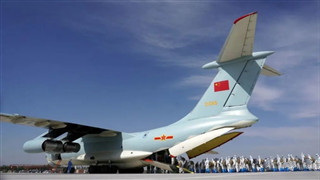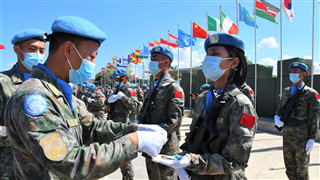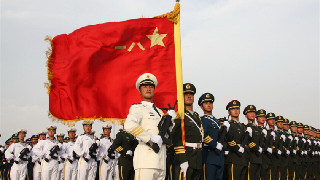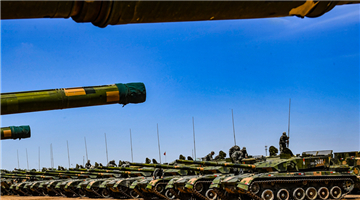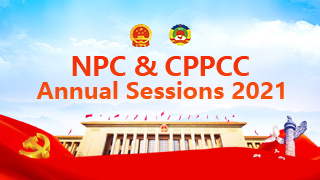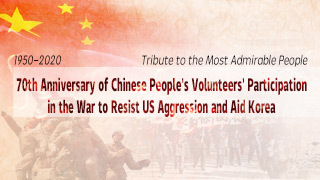At 11 am GMT, January 27, 1964, the Chinese and French governments issued a joint communiqué stating that "The Government of the People's Republic of China and the Government of the Republic of France have unanimously decided upon the establishment of diplomatic relations. They thereby have agreed to exchange ambassadors within three months." This is the briefest communiqué on the establishment of diplomatic relations with the most unique wording in the diplomatic history of the People's Republic of China. With only 40-plus Chinese characters and two sentences, the communiqué declared to the world that China and France, the two countries that both pursued independence in a bipolar world, had finally come together.
This significant historic event stirred public discourse around the world and had a tremendous impact on the international landscape. It was called a "diplomatic nuclear explosion" by Western media. The then US Secretary of State Dean Rusk said the event "ripped a slit in an iron plate". What led to the event was an extraordinary diplomatic process.
Due to the international environment during the Cold War and the divergence between China and France over the issue of national independence, the two countries still had not established diplomatic relations quite a few years after the founding of the People's Republic. Premier Zhou Enlai once said to a visiting French parliamentary delegation when speaking of the establishment of diplomatic ties that "the United States would not be able to stop it". He said, France, a country with a glorious revolutionary history, would be ahead of the United States and even the UK on this. "China could wait," said the premier, "The world is changing. With efforts from both sides, the establishment of diplomatic relations between China and France would happen in a not too distant future."
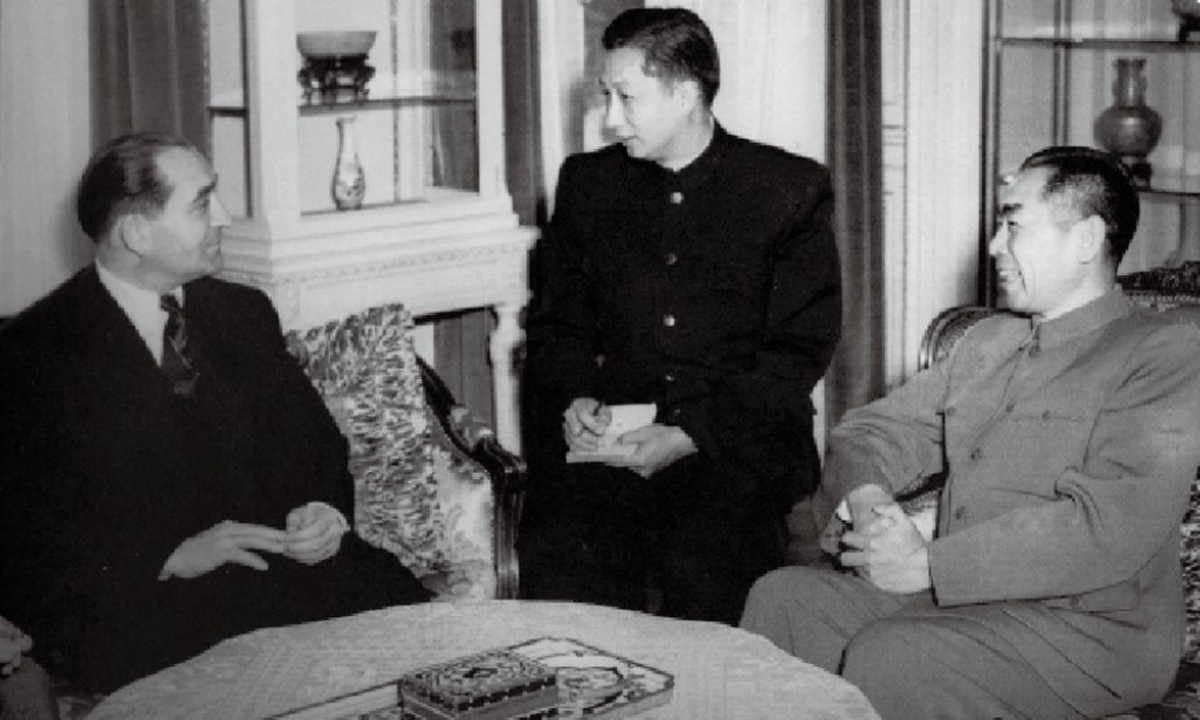
In 1962, France ended its war in Algeria, which cleared the final obstacle to the establishment of China-France diplomatic relations. Charles de Gaulle, with a strong desire to restore the pride and glory of France, was no longer willing to toe the line of the United States. He sought to fix the relationship with China. Things needed for the normalization of China-France relations had all gradually fallen into place. All that was needed next was a right opportunity to kick off the process.
On August 20, 1963, former French Prime Minister Edgar Faure visited the Chinese embassy in Bern, Switzerland. He asked Chinese ambassador Li Qingquan whether he could visit China in his personal capacity and meet with the Chinese leadership. Faure's request was immediately reported back to Premier Zhou Enlai, who was still busy working in his office at Xihuating, Zhongnanhai, deep into the night of August 22 when he received the urgent telegram.
Faure was not a stranger to Premier Zhou. In 1957, Faure, who had just left office as prime minister, paid his first visit to China upon invitation. He recorded his experiences in China in his book Le serpent et la tortue (The Serpent and the Tortoise). The name of the book was inspired by a poem of Chairman Mao Zedong. Faure likened France and China to the Serpent Hill and the Tortoise Hill in Mao's poem, which had been separated by the Yangtze river but recently linked up by a modern bridge, to indicate his belief that the two countries would eventually be linked up as well.
During his 1957 visit, Faure was received by Chairman Mao, Premier Zhou and other Chinese leaders. He recalled in his book that Chairman Mao looked heavyhearted yet still confident while commenting on China's situation. He said to Faure, "As you have seen with your own eyes, China is lagging far behind and faces daunting tasks." Mao compared the international situation to a famous Chinese fable, "When the snipe and the clam were locked in a fight, the fisherman would take advantage." This impressed Faure greatly. He wrote in his book that he had in his mind an unbelievable contradiction: many countries didn't recognize such a state leader, nor did they recognize the apparent and significant facts. He lamented on how little good that would do to France.
So when Faure again asked to visit China six years later, Premier Zhou sensed at once the very possibility that Faure was coming to deliver a message from the French government of seeking to fix its relationship with China. Without any delay, Premier Zhou instructed that an invitation be sent in the name of Chinese People's Institute of Foreign Affairs.
Premier Zhou was right. Faure had an "official mission". Faure was close to President Charles de Gaulle, who asked Faure to go to China on his behalf. He instructed Faure to inform the Chinese side that France was ready to develop bilateral relations with China out of common sense, tradition and the future. President Charles de Gaulle also wrote Faure an autograph letter stating his complete trust of him. The letter, though addressed to Faure, was actually intended for the Chinese leadership.
On October 22, Faure arrived at Beijing Capital Airport. On the next day, Premier Zhou had a talk with him in Xihuating. Faure noted Premier Zhou's student experience in France 40 years ago and said it was time for Premier Zhou to visit Paris again. Those small talks already made Faure's purpose of visit self-evident. With that, the negotiation on establishing diplomatic relations had officially begun.
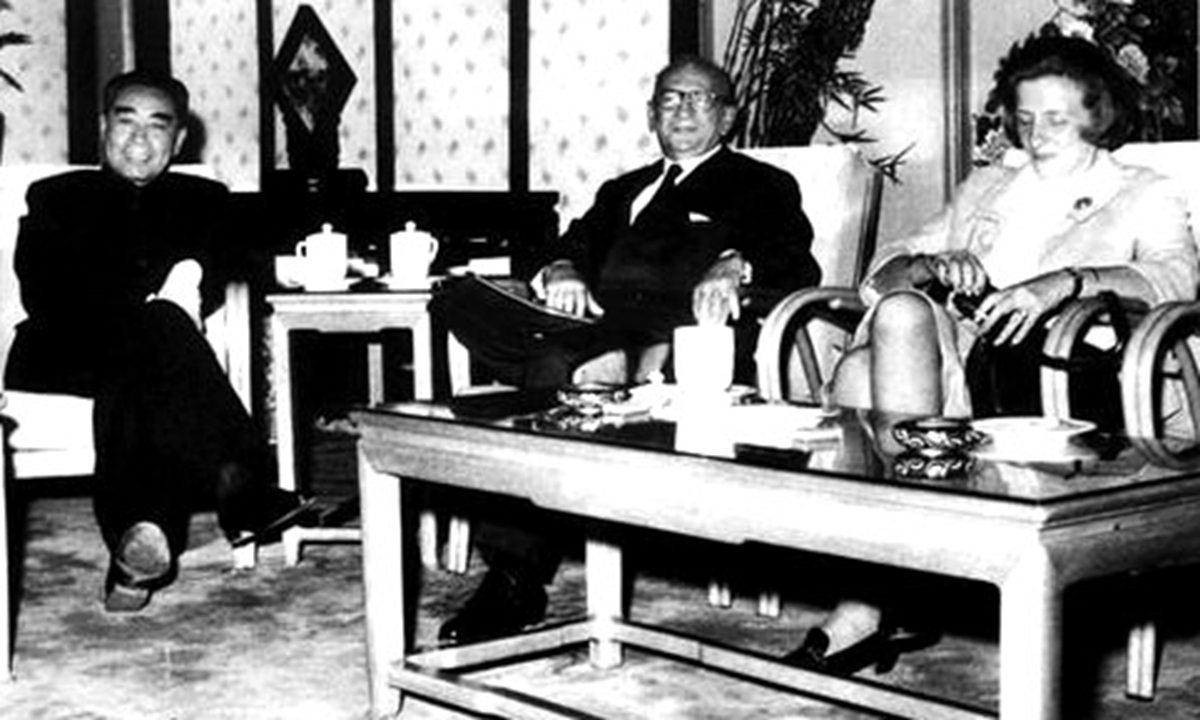
At that time, though the French government would like to establish diplomatic relations with China, it was unwilling to let go of the historical baggage over the Taiwan question and refused to take the initiative to declare the cessation of relations with Taiwan. The reason, as Faure explained, was that the government of Chiang Kai-shek had helped the "Free France" led by Charles de Gaulle during WWII. In response, Premier Zhou unequivocally stated China's principle that there can never be "two Chinas". He said to Faure, people all knew that Georges Bidault was against Charles de Gaulle. If Bidault had formed a government-in-exile supported by foreign forces, would it be acceptable to France if China recognized the government-in-exile instead of the incumbent French government or if China recognized both just because China had previously had contact with Bidault?
The negotiation came to a deadlock. To lighten the atmosphere and give Faure more time to think things over, as well as to give itself time to assess potential options, the Chinese side arranged a visit to Inner Mongolia for Faure. While Faure was out of town, Premier Zhou thought hard on how to break the stalemate by focusing on the possible procedures of the establishment of bilateral diplomatic relations. The Chinese side then put forward the "step-by-step proposal" and the "three tacit understandings" which were highly praised by Faure. The two sides then signed the Talking Points of Premier Zhou Enlai. Having read Faure's report and the Talking Points, Charles de Gaulle decided to accelerate the process. He sent Jaco de Beaumarchais, Director of European Department of the Ministry for European and Foreign Affairs, to Switzerland to negotiate with Ambassador Li Qingquan on the specifics. The new round of negotiation concluded with an agreement that both sides would declare the establishment of diplomatic relations first. As for the Taiwan question standing between the two countries, the solution is for China to issue a diplomatic note reaffirming the one China principle which France would tacitly agree with.
On January 27, 1964, China and France issued the communiqué on the establishment of diplomatic relations. On the next day, the Chinese government made a separate statement about its position concerning Taiwan, the United Nations and other international organizations, stating its rejection of any attempt of creating "two Chinas". Things were settled for the establishment of China-France diplomatic relations. On January 31, Charles de Gaulle declared France's official recognition of new China in a press conference attended by over a thousand reporters in the Elysee Palace. He noted that France needed to listen to the voice of China directly and vice versa, and that those governments still holding a wait-and-see attitude would sooner or later follow the step of France.
From Beijing to Shanghai and then to Bern, Chairman Mao Zedong, Premier Zhou Enlai and other Chinese leaders, while standing firm by principles, had shown flexibility in the negotiations to accommodate as much as they can the concerns of the other side. They secured the establishment of bilateral diplomatic relations with a reasonable and friendly approach, setting a fine example of the art of negotiation and in the history of diplomacy. As ardently hoped by the two peoples and thanks to the diplomatic wisdom of leaders of both countries, China and France finally came together to open up a new page of China-France friendly relations.
